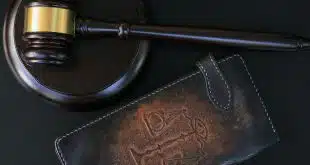Card transactions based on radio-frequency technology got a major boost today with the rollout of MasterCard International's PayPass system to some 715 McDonald's Corp. restaurants in New York, Dallas, and Orlando, Fla. The stores will go live with PayPass later this year, MasterCard says, and an undisclosed number of further locations are expected to adopt the technology next year. Other merchants are expected to announce PayPass deployments soon, MasterCard says. The McDonald's deployment represents the first commercial rollout of MasterCard's RFID technology. “This is very telling about the proliferation of PayPass,” says a MasterCard spokesperson. The McDonald's stores that will be equipped for PayPass include 500 in the New York metropolitan area, 200 in Dallas, and another 15 in Orlando that participated in a PayPass test MasterCard conducted in that city that ended last year. The fast-food chain announced earlier this year its intention to accept credit and debit card payment throughout its system, and the PayPass rollout is part of that program, the MasterCard spokesperson says. McDonald's accepts cards at 4,500 of its stores now, and expects to increase that number to 8,000 by year's end. The company owns or franchises a total of 13,500 stores in the U.S. With PayPass, cardholders tap or wave their cards on or near a receiver linked to a point-of-sale terminal. McDonald's is using a terminal from VeriFone Inc., the Omni 7000. An antenna embedded in the card transmits encrypted card-account data to the receiver, and the transaction then proceeds as if the card had been swiped. Radio-frequency, or RFID, transactions have been found to result in faster transaction times than swiped and signed transactions, making them attractive to retail venues like fast food, where tender time is critical. All the card networks are targeting the quick-serve market, which accounts for some 6 billion cash payments annually. American Express Co., which is conducting a test of similar technology in Phoenix, says its ExpressPay system cuts tender time to 8.9 seconds, compared to 12.4 seconds for cash and 15.3 seconds for signature-based debit. RFID also promises to help convert small-value transactions to electronic processing. In its Orlando pilot, MasterCard found that tickets average $21 with PayPass, with 45% of the payments coming in under $10. This is not the first time McDonald's has tried RFID payments. Earlier this year it closed down a program it was running in 440 restaurants in the Chicago area that were accepting ExxonMobil Corp.'s proprietary Speedpass device. It said at the time that it preferred to concentrate on its recently announced plan to expand card acceptance chainwide, but its announcement led to speculation that the fast-food kingpin might adopt an RFID system more compatible with the acceptance of MasterCard and Visa payments. MasterCard has also tested PayPass in Dallas, using Nokia cell phones rather than cards, but the Dallas McDonald's outlets adopting PayPass now were not part of that pilot.
Check Also
The CCCA Gets New Life Thanks to a Presidential Endorsement
The proposed Credit Card Competition Act staged a comeback Tuesday with a huge boost from …






